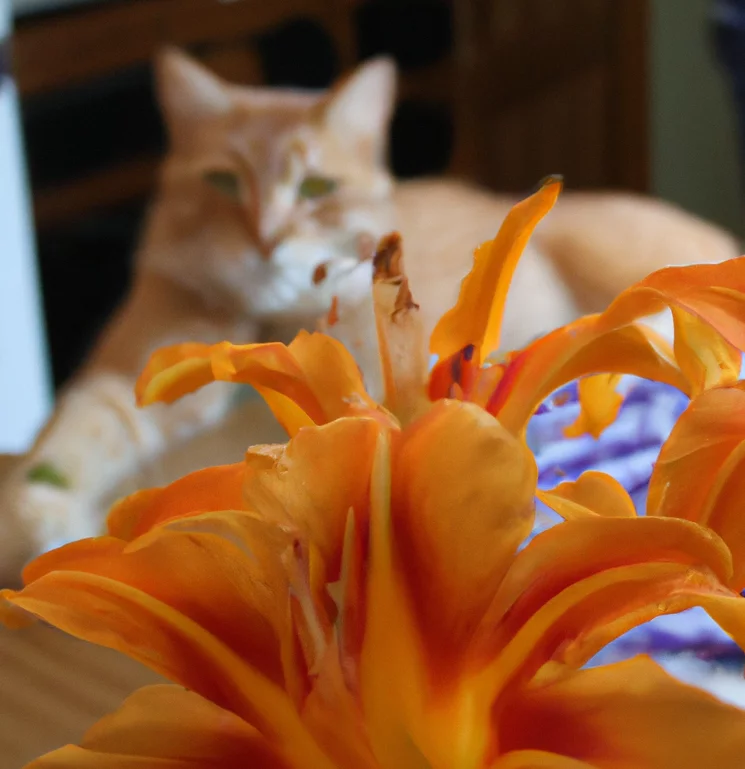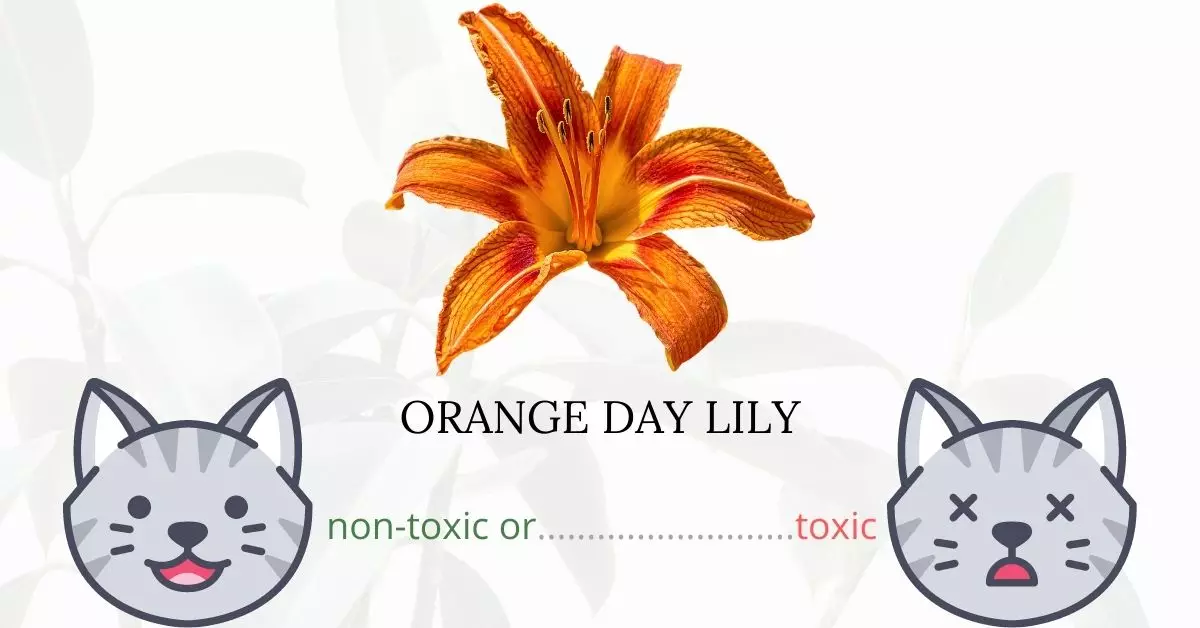Yes, orange day lilies are toxic to cats. It’s essential for cat owners to be aware that all parts of the orange day lily are poisonous to felines. Even in minimal amounts, ingestion can lead to severe poisoning. Cats can be directly poisoned by chewing, licking, or swallowing the plant. More commonly, they may be indirectly affected by the pollen. The pollen from orange daylilies can become airborne and adhere to a cat’s fur. During grooming, a cat may ingest this pollen, posing a significant poisoning risk.
This article is a collaborative effort, written with the expertise of a team of seasoned DVMs (doctors of veterinary medicine). Through their insights, we aim to provide accurate and up-to-date information on the potential hazards of various plants, focusing on the Orange Day Lily in this instance. Additionally, to ensure a comprehensive perspective, we have consulted high-authority websites like ASPCA and PetMD for every plant discussed.
Clinical Signs of Orange Day Lily Poisoning in Cats

When cats come into contact with, smell, or consume any part of an Orange Day Lily plant—especially the stem, leaves, petals, or pollen—they may show various clinical signs due to the toxins present in the plant. Understanding each sign can help in timely identification and intervention:
- Vomiting: This is one of the first and most common reactions a cat may have after ingesting the plant. It is the body’s way of trying to rid itself of the harmful substances ingested.
- Anorexia: Cats might lose their appetite due to the discomfort or nausea caused by the toxins. They may avoid food, signaling distress in their digestive system.
- Lethargy: The toxins can affect the cat’s overall energy levels, causing them to be less active or seem unusually tired. This is a result of the body’s effort to combat the poisonous substances and can indicate systemic distress.
- Kidney Failure: The toxins in the Orange Day Lily can be particularly harmful to a cat’s kidneys. Over time, if untreated, this can lead to a gradual shutdown of the kidney functions, making it one of the most severe consequences of ingestion.
- Death: In extreme cases, if the ingestion is left untreated or if a significant amount of the plant has been consumed, it can sadly lead to a cat’s death due to multi-organ failure or other related complications.
If any of these signs are noticed, it’s imperative to consult a veterinarian immediately. Early intervention can make a significant difference in the prognosis.
First Aid and Treatment of Orange Day Lily Poisoning in Cats

The key to a good prognosis is to get treatment before the kidney organs shut down, so if you spot your cat nibbling on an orange daylily, take him to the vet right once. The veterinarian may give the cat medication to induce vomiting or an activated charcoal solution to bind with the deadly plant chemical, which will then be passed out with feces.
The veterinarian will most likely start your cat on IV fluids to replace lost fluids and aid in the toxin’s elimination to help him get rid of the orange daylily toxin. When fluids pass through the urinary system, they first pass through the kidneys, carrying any toxins with them to be excreted in the urine waste.
Recovery from Orange Day Lily Poisoning in Cats

The feline should have received veterinary treatment within six hours of consumption for a better prognosis. Once proper medical attention and care is given, your cat will get better and return to his normal routine in a matter of few days.
Prevention of Orange Day Lily Poisoning in Cats
Avoid growing or bringing orange daylilies inside your home. Minimizing your cat’s outdoor access will help in reducing the risk of exposure to orange daylilies that may be growing in your neighbor’s garden. Keep your cat in good condition by giving him a balanced diet and mentally stimulated.
If you love plants but have cats at home, check out these lists:





